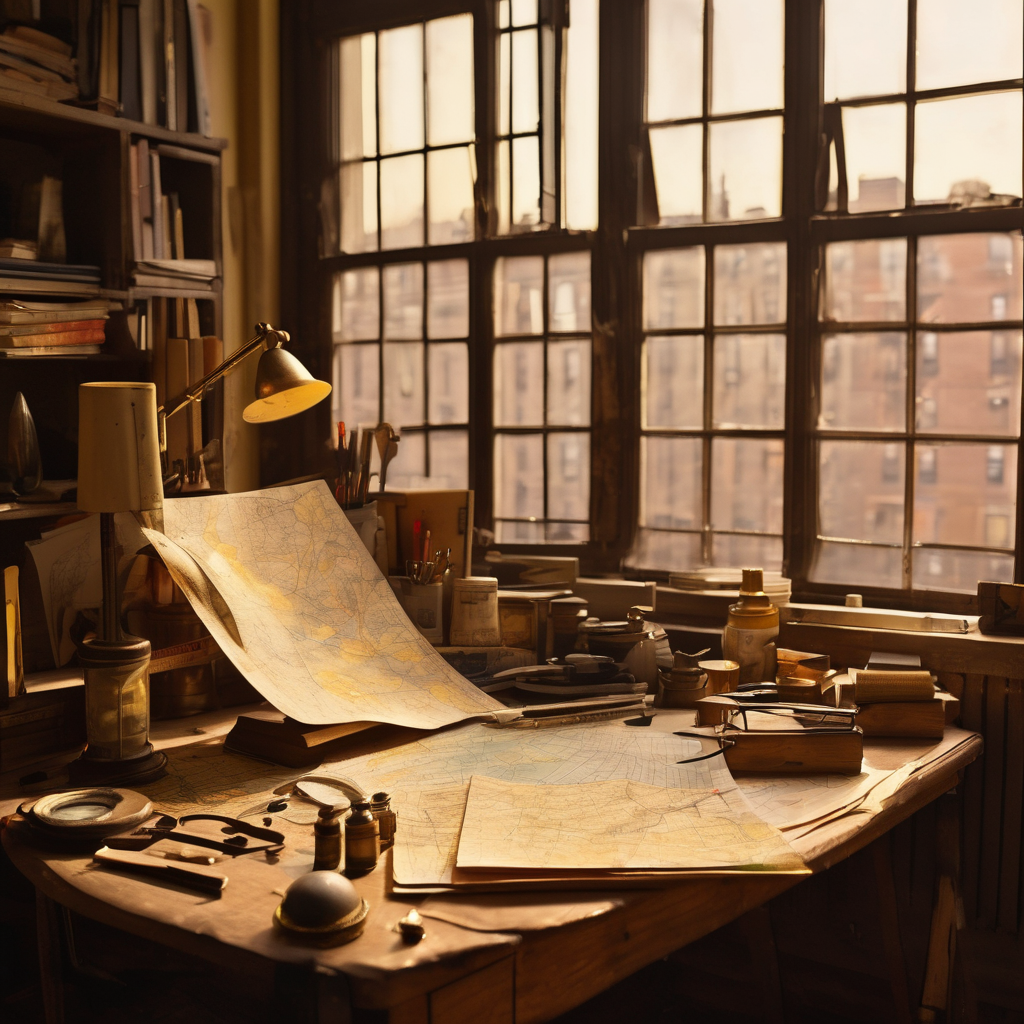The algorithm had been running for three days when Mira discovered her father’s final map.
She’d inherited his Brooklyn apartment after the funeral, along with his collection of analog cartography tools that seemed almost quaint in an age of AI-generated terrain models. While clearing space for her remote work setup, she found it tucked behind a framed projection of the Mariana Trench—a hand-drawn chart unlike anything in his published portfolio.
The map showed no recognizable landmass. Instead, neural pathways branched across the yellowed paper like rivers, annotated in her father’s cramped handwriting: “dopamine tributaries,” “serotonin deltas,” “the archipelago of executive function.” At the center, a small X marked “Mira, age 7, before the forgetting.”
Her phone buzzed with another notification about the congressional hearing on AI consciousness, but she ignored it. The map’s edges were dated three months ago, when her father’s neurodegenerative diagnosis had been terminal. Yet the linework was steady, precise.
She photographed the map and uploaded it to her neural network, the one she’d been training to detect patterns in climate migration data. The machine learning model, never designed for this purpose, began identifying correlations she hadn’t expected—between her father’s mapped regions and her own childhood medical records, recently digitized from the hospital’s sustainability initiative.
The truth emerged in fragments: experimental treatment trials, informed consent forms signed by a single parent, memory suppression as a side effect. Her father hadn’t just been charting the world’s geography. He’d been mapping what the trials had taken from her, spending his final months creating a guide back to memories that might still exist, dormant, waiting to be rediscovered.
Mira traced the pathways with her finger, following the route he’d marked from “traumatic recall” through “selective reconstruction” to a region labeled simply “home.” The map was more than an artifact—it was an invitation to reclaim her own cognitive territory, with her father as the guide who’d charted the way even as his own mind dissolved.
She opened a new terminal window and began coding, translating his analog wisdom into algorithms that could navigate the landscape of her own neural architecture. Some journeys, she realized, required both ancient tools and cutting-edge technology to complete.
The Cartographer’s daughter had finally found her inheritance: not just maps of the world, but a map back to herself.

Leave a Reply